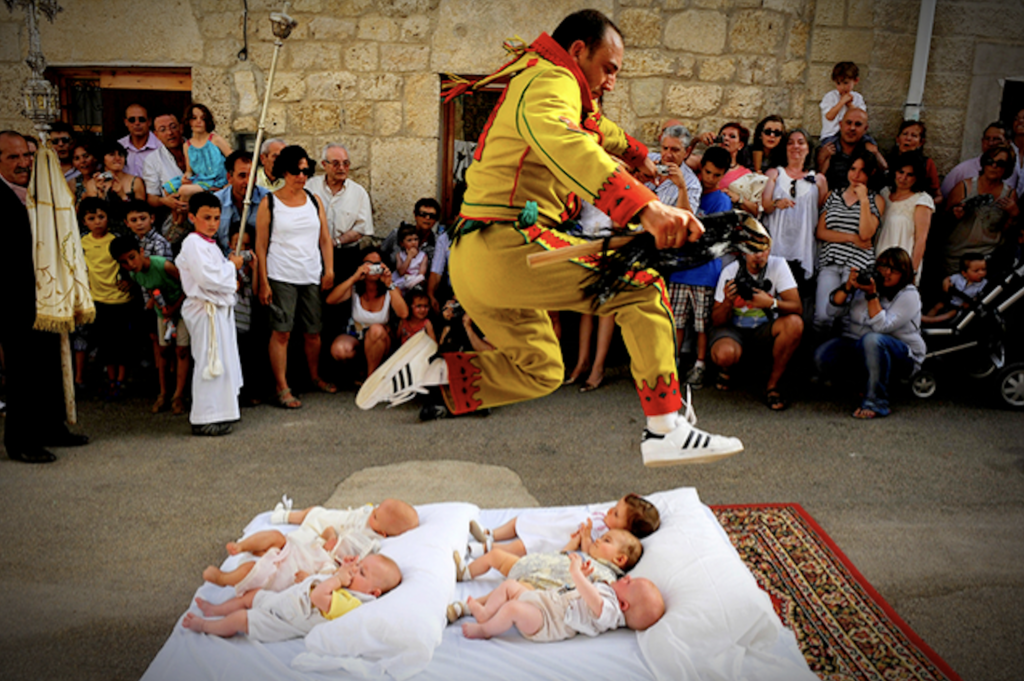
Matthew 27
45 Now from the sixth hour there was darkness over all the land until the ninth hour. 46 And about the ninth hour Jesus cried out with a loud voice, saying, “Eli, Eli, lema sabachthani?” that is, “My God, my God, why have you forsaken me?” 47 And some of the bystanders, hearing it, said, “This man is calling Elijah.” 48 And one of them at once ran and took a sponge, filled it with sour wine, and put it on a reed and gave it to him to drink. 49 But the others said, “Wait, let us see whether Elijah will come to save him.” 50 And Jesus cried out again with a loud voice and yielded up his spirit.
I think one of the best feel-good viral videos I have ever seen is a video of a man sitting on a bench in a city park. He is listening to Jon Bon Jovi’s 1986 rock classic “Livin’ on a Prayer” and loudly singing the opening lines by himself. The video picks up with him singing midway through the opening verse.
Gina works the diner all day
Working for her man, she brings home her pay
For love—for love
As he sings these lines, a number of people lounging in the park turn to him with smiles of pleasant curiosity. Slowly, some join in as he continues.
She says we’ve got to hold on to what we’ve got
Cause it doesn’t make a difference
If we make it or not
We’ve got each other and that’s a lot
For love—well give it a shot
And then—the greatest part of the video—by the time he hits the chorus seemingly the whole park has joined in and loudly sings along with him:
Whooah, we’re halfway there
Livin on a prayer
Take my hand and we’ll make it—I swear
Livin on a prayer
Now what on earth, you might ask, does this have to do with Jesus saying “My God, my God, why have you forsaken me?” from the cross?
Simply this: In the video, the man loudly proclaims something that was well known to the majority of people within earshot. He shouts out the beginning words of a song that had cultural currency and, to judge by the joint singing of the chorus, cultural buy-in. As he does so, we see the crowd move from (a) curiosity and confusion to (b) partial participation to (c) majority buy-in and celebration. In a sense, the man on the bench invites the crowd on a journey and most of them agree to take it with him. But he invites them through proclaiming the opening lines of the song. He invites them through the “hook,” if you will, of a doorway through which they knew they would need to pass to greater things: the great sing-along chorus of that song.
There is something like this happening in our text in Matthew 27.
45 Now from the sixth hour there was darkness over all the land until the ninth hour. 46 And about the ninth hour Jesus cried out with a loud voice, saying, “Eli, Eli, lema sabachthani?” that is, “My God, my God, why have you forsaken me?” 47 And some of the bystanders, hearing it, said, “This man is calling Elijah.” 48 And one of them at once ran and took a sponge, filled it with sour wine, and put it on a reed and gave it to him to drink. 49 But the others said, “Wait, let us see whether Elijah will come to save him.” 50 And Jesus cried out again with a loud voice and yielded up his spirit.
Jesus is quoting the first words of a psalm that many of the Jews would have known well. At first, there is confusion, as you can see in the unfolding of our text. Then, in time, with the coming of the Spirit upon the church, some join in and sing with Him. And now a multitude from every nation, tribe, and tongue joins with Jesus in singing the rest of this psalm. And let us be clear of this: The rest of this psalm matters immensely. Jesus opens a door for us so we can walk with Him through this great psalm and eventually reach the great chorus of praise!
Continue reading →




